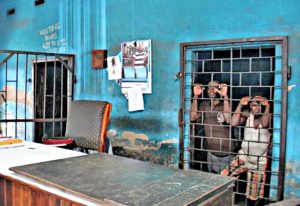By Godwin Owusu Frimpong
“Chasing Shadows: Are Politicians Serious About Ending Galamsey, or Just Playing to the Gallery?”
In a revealing moment during the recent ‘Meet the Press’ event in Accra, a question posed by Nana Yaw Kesse from Peace FM brought to light a pervasive issue that plagues Ghana: the fight against illegal mining, commonly known as ‘galamsey’. The question, which circled around Dr. Mahamudu Bawumia’s promises to abolish certain unpopular taxes if elected president, shed light on a larger, ongoing national crisis—galamsey and its devastating impact on the environment and public health.
Dr. Bawumia’s response, “What will I do when I come into office?” raises alarm bells. It implies that urgent measures to combat galamsey are contingent upon his ascension to the presidency rather than a pressing obligation that should be addressed now. This delay in action speaks volumes about the political will—or lack thereof—among the ruling elite to tackle the galling issue of illegal mining, which has led to widespread pollution of water bodies and destruction of farmlands.
Ghana is currently grappling with a pressing public health crisis as the waters in numerous communities become tainted with chemicals from illegal mining operations. The idea that the government will wait for a change in leadership before taking serious action against galamsey is not just frustrating; it is bewildering. If decisive action is the need of the hour, why not implement these changes immediately?
This lack of immediate commitment mirrors the broader challenges the country faces—one that consistently prioritizes political expediency over environmental and public health concerns. Dr. Bawumia’s equivocation could be perceived as a signal that the fight against illegal mining is merely a campaign talking point rather than a genuine commitment to safeguarding Ghana’s natural resources and the well-being of its citizens.
As Ghanaians grapple with the consequences of inaction, including contaminated water supplies and health problems like skin diseases and digestive disorders related to poor water quality, one must wonder what is stopping politicians from taking concrete steps now to address this crisis. The unwillingness to act decisively suggests a troubling possible narrative: as long as galamsey remains a convenient backdrop for political discourse, the real issue will continue to fester, leaving ordinary Ghanaians to suffer without clean drinking water.
Until our leaders show genuine resolve and prioritize the health of the citizens and the environment over political strategy, the fight against galamsey will remain a mere sideshow—resulting in dirty water for Ghanaians and a growing cancer that future governments will have to contend with. The stakes are high, and the need for immediate action is paramount. The question lies: will politicians rise above their ambitions for power and take a stand now, or will they continue to let the crisis worsen while they wait for a puff of political wind?
Godwin Owusu Frimpong




